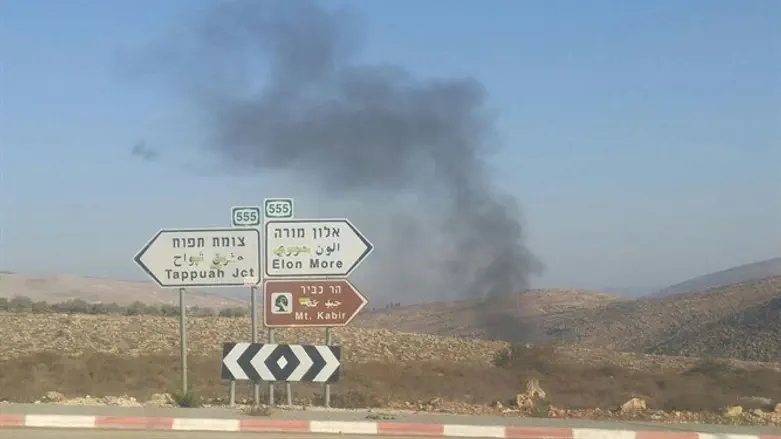
Residents of Itamar can breathe more freely after months of exposure to dangerous substances from an adjacent illegal garbage dump which operated between Itamar and Shechem.
After the Regavim movement (dedicated to monitoring illegal Palestinian Arab construction activity) and the Shomron regional council appealed to the Civil Administration, the enforcement unit and environmental officers arrived at the dump, confiscated mechanical equipment and closed off the approach routes which had been illegally constructed. Despite this another dump is still active south of the community.
Ovad Arad, Director of the Territorial Department at Regavim, stated that despite the existence of the Zaharat Al Finjan site for the legitimate disposal of waste materials of the cities Shechem, Jenin, Tulkarm and Kalkilya, a large proportion of the waste created in Palestinian Arab villages in the Samaria region is burnt at illegal sites.
Shomron Regional Council head Yossi Dagan welcomed the Civil Administration's intervention but said "unfortunately there are many such incinerators all over the place. It's time that the State of Israel act like a sovereign in the region and for the sake of future generations stop these destructive practices."
Last year the Regavim organization published a report highlighting the illegal incinerators in Judea and Samaria. Based on the initial mapping conducted by Regavim last December, there are now about 200 incinerators scattered from south of Hevron to northern Samaria, of which a third are in Area C under full Israeli control.
The environmental consequences of illegal garbage dumps are much more serious than those of supervised sites. The damage includes putrid smells, air, ground and water pollution, danger of infectious diseases and even release of dangerous poisons into the open air.
The hundreds of incineration sites create a huge amount of smoke which is a significant nuisance for surrounding communities, both Jewish and Arab. The ecological damage caused by burning waste differs from place to place and depends on their proximity to communities, on wind directions and on the varying conditions.